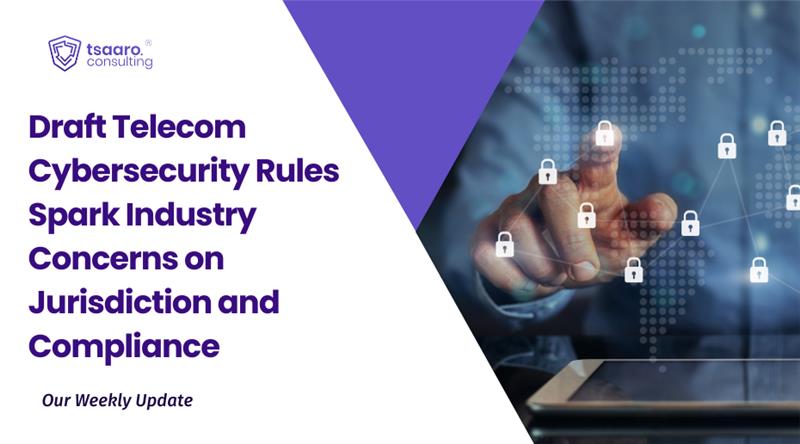Technological development has led to a tremendous increase in the size and popularity of the online gaming industry. With an active gaming community of approximately 420 million players and a digitally engaged audience of 500 million individuals aged between 15 and 35, the Indian gaming industry has witnessed an extraordinary surge in growth, particularly among teenagers. Online gaming, once considered a hobby, is now evolving into a career, and with India’s vast youth population, experts anticipate it will emerge as a prominent player in the gaming industry. Various reports indicate that the global gaming sector, which experienced consistent growth over the past five years, expects to triple in size by 2025, reaching an astonishing $3.9 billion.
However, this rapid expansion of the online gaming industry poses a concern relating to the privacy of users. These game companies collect an enormous amount of personal data while registering on their platforms, email addresses, gender, birthdates. The collection of sensitive data involves potential risks such as fraud, identity theft, and unauthorized access to private data. Therefore, regulation of the online gaming industry has become very essential to protecting the privacy of users. In this article, we will see why regulation of the gaming industry is important from a privacy standpoint.
Understanding Online Gaming and Privacy
There has been significant progress in the online gaming industry in the last several years. As data processing technologies getting advance and proliferating quickly, gaming companies are collecting more user data than even governments do or can, which puts commercial data collection at the forefront of privacy issues. These gaming companies use a variety of, frequently intrusive, techniques to turn consumers’ online activity into a commodity, including cookie-based profiling, location-based advertising, and behavioural targeting. Additionally, they persuade customers to supply more personal information than is necessary for exchange for better online communication experiences or as a concession for using the offered digital services and products.
Read More: Big Data and Privacy
Hence, the notion of privacy is under more scrutiny in the online gaming era. These gaming platforms have advanced, connecting globally, and possess substantial economic value. As a result, the requirements for maintaining privacy are changing, and the lines separating the public and private spheres are blurring. Concerns about people’s declining control over their personal information, their understanding of what is public or private in digital environments, and the numerous privacy violations caused by individuals, organisations (including both governmental and private entities), as well as malicious or criminal activities, are becoming more prevalent in both public discussions and the media.
Privacy Challenges in the Online Gaming Industry
The lack of digital literacy by users is one of the most significant challenges. A large number of people may not be aware of the consequences of providing their data and the potential risks involved. They’re not aware that a gaming company can collect, store and potentially use their data. In the absence of that information, there may be complacency and depreciation for the importance of privacy protection.
Furthermore, consumers often find it difficult to comprehend the private data protection policies provided by gaming platforms, which may result in limited awareness of the consequences of disclosing their data. Facilitating the use of complex legal terminology by making it more difficult for users with a low level of knowledge and understanding is exacerbating this problem. As a result, users may inadvertently accept terms and conditions that lack clarity regarding the extent of personal data collection and its intended use. This lack of informed consent exposes consumers to potential data protection infringements and exploitation.
Benefits of Privacy Regulations in Online Gaming
For the protection of personally identifiable information in online games, a high level of security should be implemented. This also includes strong authentication methods, safe storage systems, and encryption of personal data. Through the use of methods like Secure Socket Layer (SSL) encryption and two-factor authentication, gaming companies can prevent unauthorised access to personal data. Security audits and updates should frequently carried out in order to reduce vulnerabilities and guarantee that user information is kept secure.
In order to foster a positive gaming environment, it is essential to build trust and confidence among players. Gaming companies should make their data processing procedures, privacy policies, and data sharing transparent to the public. For the players, a clear indication of these components will foster a sense of assurance and confidence. Furthermore, allowing users to customise their privacy settings and manage the availability of information about them can help to increase trust and confidence in this platform.
For gaming companies, adopting ethical data gathering and usage procedures must be a top focus. This approach includes requesting users’ express consent and collecting only the personal information that is essential to provide gaming services. Companies should be transparent about the aim and scope of information collecting in order to guarantee that it complies with ethical and regulatory requirements. In order to uphold the ethics of data collection, and in order not to collect too much or unnecessary information, periodic audits and compliance checks may be helpful.
To protect users’ privacy, it is necessary to take measures to prevent identity theft and data leakage. To this end, gaming enterprises should put in place effective security measures such as periodic system updates, robust code enforcement techniques and intrusion detection systems. In order to identify and correct any security gaps, penetration tests and vulnerability assessments can be carried out regularly.
Read More : Future proof strategies for data management and security
Role of Gaming Companies in Ensuring Privacy
The gaming company can play a significant role in ensuring the privacy of its users. This could be achieved by implementing robust measures like encryption techniques, secure storage systems, and industry-standard protocols.
Furthermore, these gaming companies should provide privacy policies and terms of service in a clear manner. By following these practises, companies can ensure that the right kind and amount of user data are being processed. Also, before collecting and using users’ personal information, gaming companies should obtain their explicit consent. To ensure transparency and comprehension, seek consent by explicitly informing users about the data being collected, its intended use, and any third parties with whom it may be shared. Users should always have the option to provide or withdraw consent.
To accomplish all these measures, these gaming companies may take advise from certified privacy professional. By fulfilling all these roles gaming companies can foster a good relationship with users. Responsible data management practices not benefit users but also preserve the game industry’s reputation as trustworthy custodian of personal information.
Conclusion
The regulation of the online gaming industry is of paramount importance from a privacy standpoint. Online gaming companies collect a wide range of data, from basic details to sensitive information. Mishandling of data can lead to risks such as data breaches, unauthorised access, profiling, targeted marketing, and online harassment. For the purpose of combating these concerns, gaming operators need to ensure a high level of data protection. You can achieve this by implementing a wide range of data protection safeguards.
Stay updated on the latest laws of data privacy with Tsaaro












